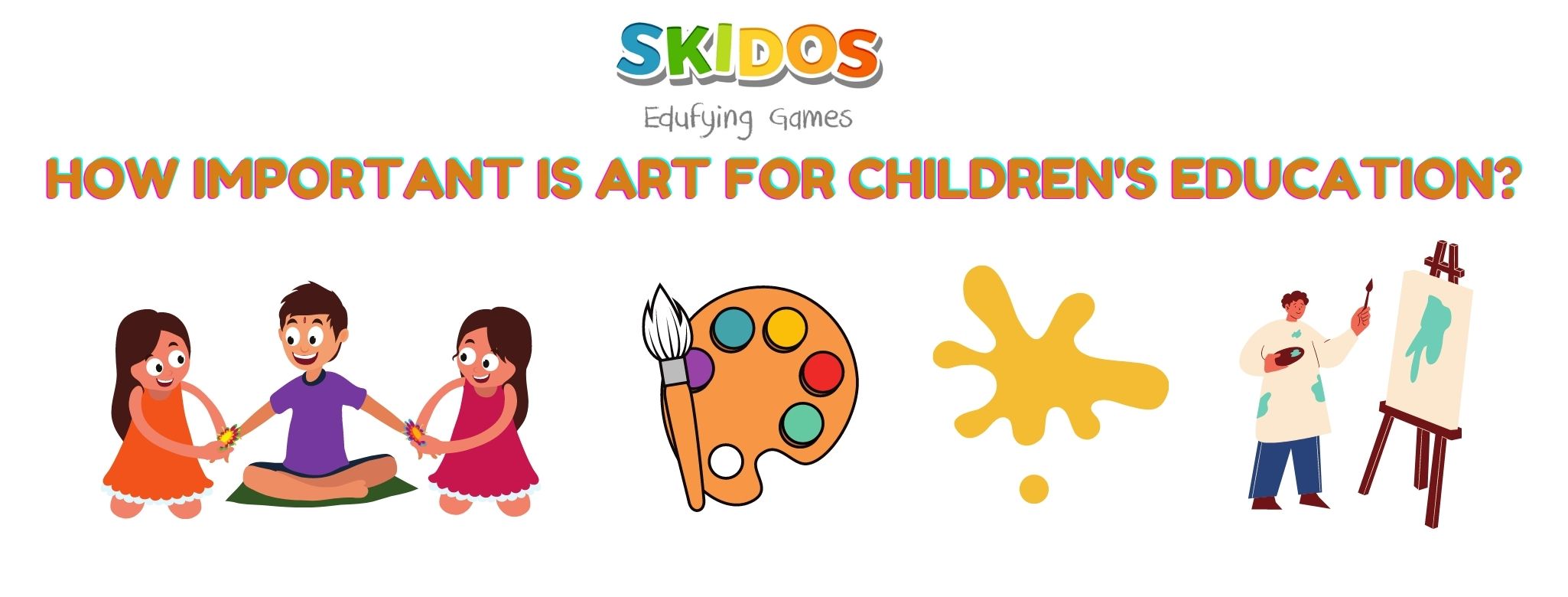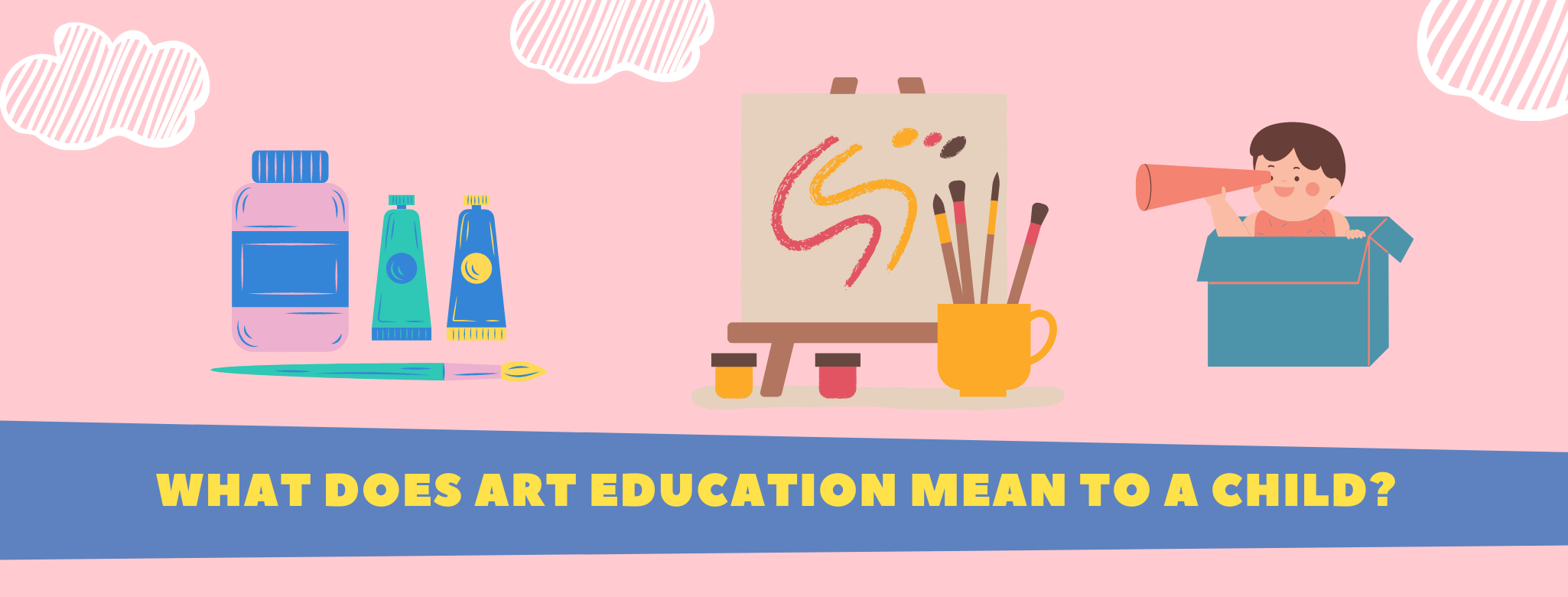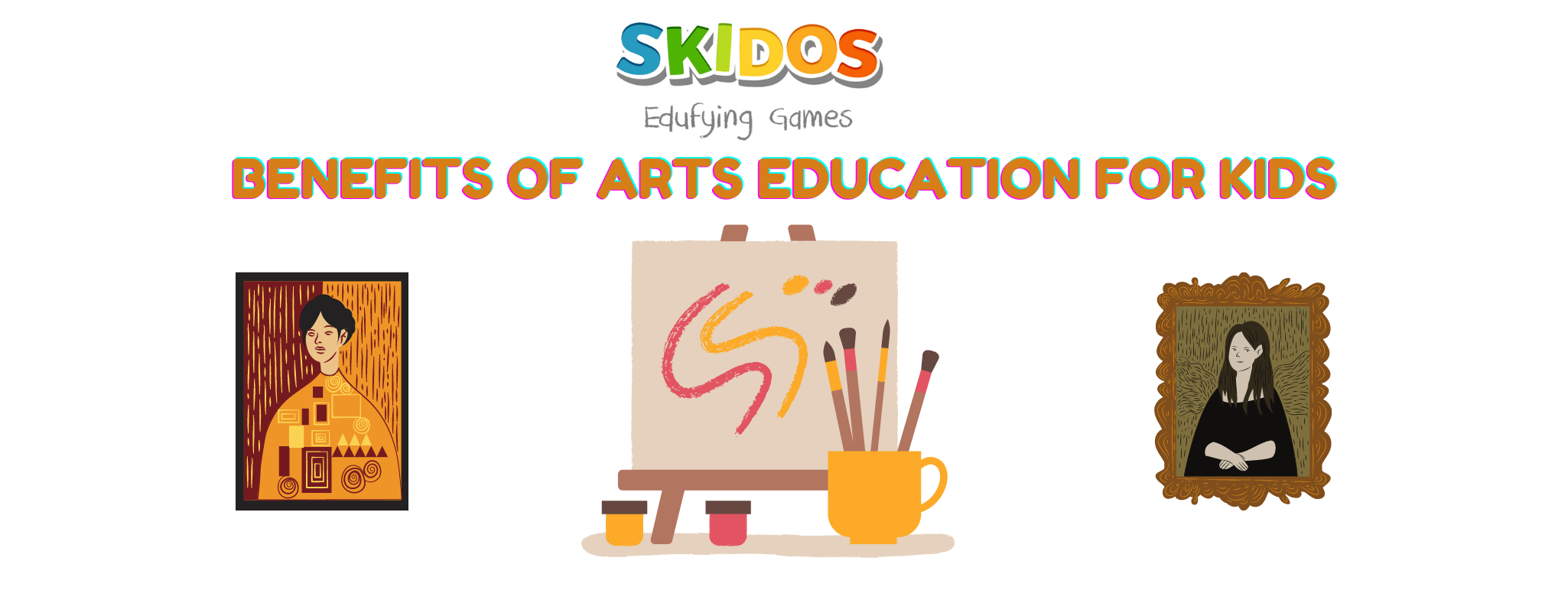
Some parents tend to underestimate the importance of arts education. They believe that if they want their sons and daughters to become lawyers and economists, kids shouldn’t waste their time on music, drama, dance, design, and visual arts classes. Furthermore, It is hard to think about, What does art education mean to a child?
But you didn’t know that: Arts education helps young people navigate their emotions 😉
Kids with strong emotional skills—that is, the ability to express their feelings verbally, understand how others are feeling and show empathy—have healthier relationships, do better at school and are less likely to experience depression and anxiety.

How important is arts education for children?
Art instruction helps children with the development of motor skills, language skills, social skills, decision-making, risk-taking, and inventiveness. Visual arts teach learners about color, layout, perspective, and balance: all techniques that are necessary in presentations (visual, digital) of academic work.
Arts education is all about developing creative skills in children. The more kids draw, dance, play musical instruments, and write poetry, the more creative they get. Creative skills help kids to become better problem solvers. They can quickly adapt their thinking to different situations & tend to experience less stress and make more informed decisions.
When a teacher asks to choose a topic for a research paper, creative children come up with writing ideas quickly. Thanks to a well-developed imagination, they don’t see this task as a challenging one.

Photo by Tim Mossholder from Pexels
From the early years, kids are told that two plus two is four, and there are no other solutions. But the real world is complex and, as a rule, most of the problems have multiple solutions. It’s necessary to explain to children that they should apply a multiple-solution approach to every issue they face on their way.
| >>> You might not know this important information: Fine Motor Skills In Toddlers: 5 Fun Ways To Improve
Arts education works towards developing different perspectives in children. For instance, children who study photography know that there is no “one right way” to photograph a specific object.
Studying arts for years, kids acquire an essential skill – they learn to evaluate problems from different perspectives and provide more than one solution. As a result, they get the ability to navigate big life challenges with ease.

Arts education allows kids to learn fundamental social skills and develop the ability to participate in relationships, seek help when needed, and be dedicated to the goal.
When children participate in drama, they learn to collaborate with other children and to work together. Kids get a clear understanding that it’s impossible to achieve high results without dedication – if you aim to get a standing ovation, you should attend all rehearsals and memorize your lines by heart.
Emotional intelligence is more important than hard skills like math or grammar. If a child writes with mistakes, he can use the internet to proofread his papers. But if he has poor teamwork skills, then neither parents nor advanced technologies can provide an instant solution.

Arts education helps kids to learn from failure. Kids understand that not every poem they write, and not every picture their draw is a masterpiece. They get aware of the mistakes they make and keep improving their skills to achieve a new level of mastery.
Attending art classes, children learn to give and receive constructive criticism. They learn to analyze their creative works and works of their peers more deeply. In such a way, they get rid of the fear of failure and improve their self-esteem.
| >>> Find out more: The best First Aid Games for Kids: Awarded Interactive Role-play
Multiple studies have proved that arts-integrated learning improves memory for content. In other words, if children listen to a song about United States presidents, they will be more likely to remember the names of all 45 presidents. And if kids sketch vocabulary words in a French class, they will be more easily to memorize these words.
So if you want to improve your kids’ overall performance, encourage them to use arts-based learning strategies. Show them how they can apply music, dance, or visual arts to acquire new knowledge in a more effective way.

Modern kids experience lots of stress and face difficulties in expressing their positive and negative emotions. Pretty often, children struggle to formulate what specifically bothers them and describes the situation to the parents.
When kids can’t communicate their feelings verbally, they can do it through art. They can paint, dance, play musical instruments, compose music – do whatever helps them express their feelings and let them out. In such a way, kids can reduce stress levels and improve their mental wellness.
Arts education for kids can benefit your children in multiple ways. So please make sure that your kids don’t skip dance, drama, film, craft, design, digital arts, and poetry classes. Explain to your kids why these classes are important and motivate kids to attend them. You can be sure that your children will thank you for your support when they grow up.
About The Author: Nicole Garrison is a psychology writer for ClassyEssay, an educational platform. She creates content that inspires students and their parents to master new skills and try out new roles. Nicole spends her free time reading self-development books and visiting contemporary art exhibitions.